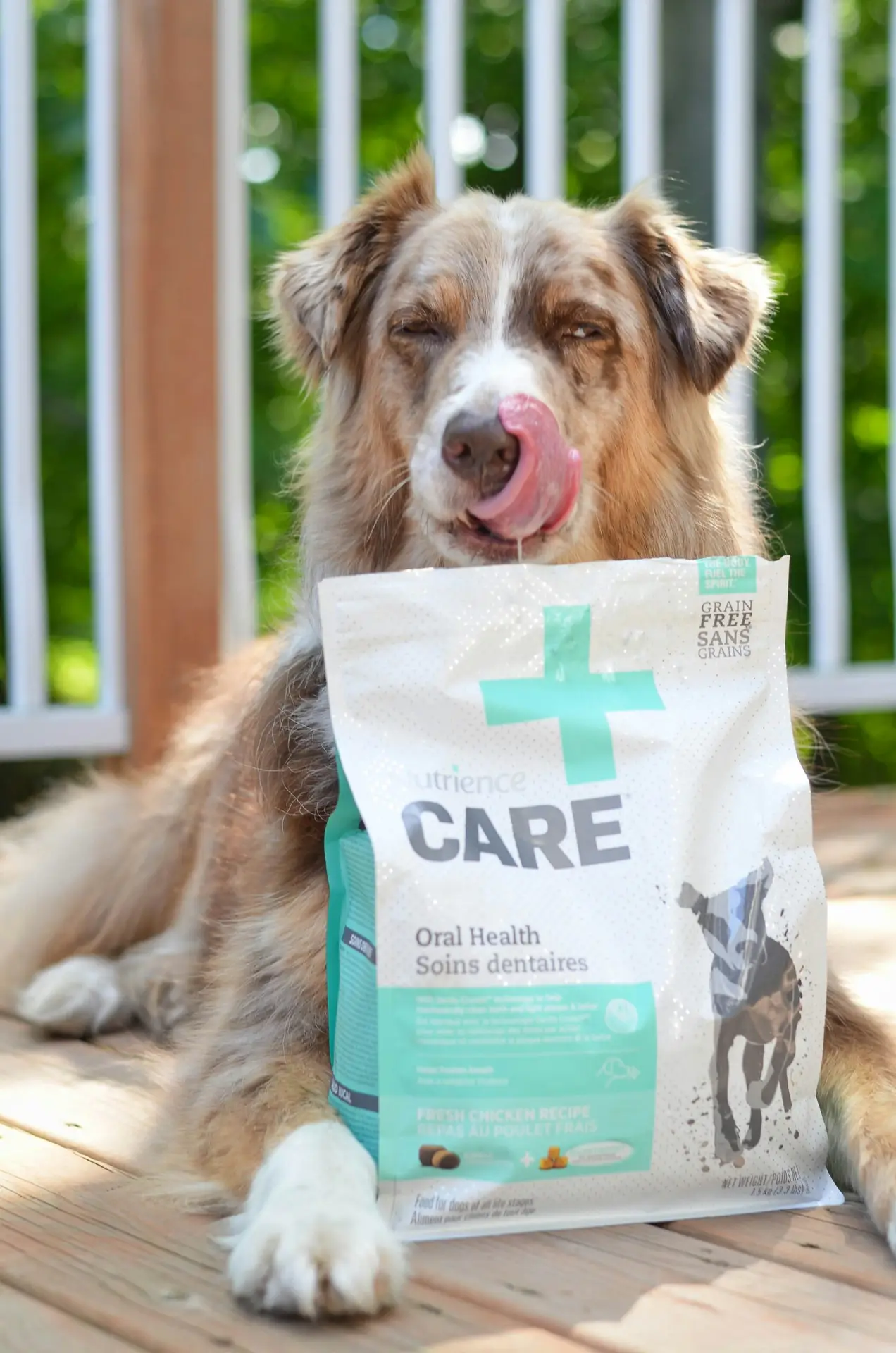Cognitive Dysfunction Syndrome (CDS) in dogs is a progressive degenerative condition of the brain that affects older dogs, similar to Alzheimer’s disease in humans. It is a common cause of age-related changes in behavior, memory, and learning ability in dogs.
As our beloved furry friends age, it’s important to be aware of the various changes that they may undergo. While some of these changes are normal, others may be indicative of a more serious condition, such as Cognitive Dysfunction Syndrome (CDS). CDS is a degenerative disease that affects the brain and is similar to Alzheimer’s disease in humans. In this article, we’ll take a closer look at CDS in dogs, including its symptoms, causes, and treatments.
Symptoms of Cognitive Dysfunction Syndrome in Dogs

CDS is a progressive disease that affects the cognitive abilities of dogs. Some of the most common symptoms of CDS include disorientation, confusion, and changes in sleep patterns. Affected dogs may also lose interest in social interactions, become less responsive to commands and cues, and exhibit increased anxiety or agitation. Additionally, dogs with CDS may experience house soiling, changes in appetite or thirst, reduced activity levels, repetitive behaviors, and decreased ability to learn new things or remember previously learned information.
Article you may like Bed wetting in dogs: Why Does My Dog Pee on My Bed?
The symptoms of CDS can vary, but some of the most common signs include:
- Disorientation and confusion:
Dogs with CDS may appear lost or confused, even in familiar surroundings. They may wander aimlessly or forget where they are. - Changes in sleep patterns:
Dogs with CDS may sleep more during the day and become restless or agitated at night. They may also exhibit changes in their sleep-wake cycle. - Loss of interest in social interactions:
Dogs with CDS may become less interested in socializing with people and other animals. They may also stop responding to their name or familiar commands. - Decreased response to commands or cues:
Dogs with CDS may become less responsive to verbal or visual cues. They may also have trouble following basic commands, such as sit or stay. - Increased anxiety or agitation:
Dogs with CDS may exhibit signs of anxiety or agitation, such as pacing, panting, or whining. They may also become more easily startled or frightened. - House soiling:
Dogs with CDS may forget their house-training and begin to soil indoors. They may also have difficulty getting outside in time to relieve themselves. - Changes in appetite or thirst:
Dogs with CDS may experience changes in their eating or drinking habits. They may lose interest in food or water or become more voracious eaters. - Decreased activity level:
Dogs with CDS may become less active or seem more lethargic than usual. They may also lose interest in their favorite activities, such as playing or going for walks. - Repetitive behaviors:
Dogs with CDS may exhibit repetitive behaviors, such as pacing or circling, that serve no apparent purpose. - Reduced ability to learn new things or remember previously learned information:
Dogs with CDS may have difficulty learning new commands or tricks. They may also forget previously learned information or routines.
It’s important to note that not all older dogs will exhibit these symptoms, and some of these symptoms can also be indicative of other medical conditions. If you suspect that your dog is exhibiting any of these signs, it’s important to consult with your veterinarian to determine the cause and appropriate treatment.
Causes of Cognitive Dysfunction Syndrome in Dogs

While the exact causes of CDS are not fully understood, research has suggested that a variety of factors may contribute to its development. These factors include age-related changes in the brain, chronic inflammation, oxidative stress, and genetics. Additionally, some studies have suggested that diet and lifestyle factors may also play a role in the development of CDS.
The exact cause of Cognitive Dysfunction Syndrome (CDS) in dogs is not fully understood, but there are several factors that are believed to contribute to its development. These include:
- Age-related changes:
As dogs age, changes occur in their brain structure and function. These changes can affect cognitive function and lead to the development of CDS. - Chronic inflammation:
Chronic inflammation, which can occur due to a variety of factors such as infections, can contribute to the development of CDS. - Oxidative stress:
Oxidative stress occurs when there is an imbalance between free radicals and antioxidants in the body. This can lead to damage to cells, including those in the brain, and contribute to the development of CDS. - Genetics:
Some breeds of dogs are more predisposed to developing CDS than others, suggesting that there may be a genetic component to the disease. - Diet and lifestyle factors:
Certain dietary and lifestyle factors, such as lack of exercise or exposure to environmental toxins, may also contribute to the development of CDS.
It’s important to note that while these factors may increase the risk of CDS, not all older dogs will develop the disease. Additionally, some of these factors are modifiable, meaning that taking steps to address them may help to reduce the risk of CDS. For example, providing regular exercise and a healthy diet, as well as minimizing exposure to environmental toxins, may help to support brain health and reduce the risk of cognitive decline in aging dogs.
Treatments for Cognitive Dysfunction Syndrome in Dogs

Cognitive Dysfunction Syndrome (CDS) is a progressive disease with no known cure, but there are several treatments available that can help to manage the symptoms and improve quality of life for affected dogs. These treatments may include:
- Medications:
There are several medications that may be prescribed to manage the symptoms of CDS, including drugs that target brain function and improve cognitive abilities. Some common medications used for CDS include selegiline, a drug that increases dopamine levels in the brain, and melatonin, a hormone that can help regulate sleep-wake cycles. - Diet and supplements:
Some dietary and nutritional supplements may also help to support brain health and reduce the progression of CDS. For example, foods rich in antioxidants and omega-3 fatty acids may help to reduce inflammation and oxidative stress in the brain. Supplements such as SAMe and vitamin E may also be beneficial. - Environmental modifications:
Making changes to the dog’s environment can help to reduce stress and confusion and improve cognitive function. This may include using visual cues, such as signs or pictures, to help the dog navigate their surroundings, or providing a comfortable and familiar space for them to rest. - Behavioral interventions:
Certain behavioral interventions may also be helpful in managing the symptoms of CDS. For example, providing regular exercise and mental stimulation can help to maintain cognitive function and reduce anxiety and agitation. Additionally, training techniques that use positive reinforcement may help to improve the dog’s responsiveness to commands. - Complementary therapies:
Some complementary therapies, such as acupuncture or massage, may also be helpful in managing the symptoms of CDS. These therapies can help to reduce stress and anxiety, improve circulation, and promote relaxation.
It’s important to note that the effectiveness of these treatments can vary depending on the individual dog and the severity of their symptoms. Additionally, early diagnosis and intervention can help to slow the progression of CDS and improve the dog’s quality of life. If you suspect that your dog may be exhibiting symptoms of CDS, it’s important to consult with your veterinarian for an accurate diagnosis and appropriate treatment plan.
Conclusion
Cognitive Dysfunction Syndrome is a serious condition that can significantly impact the quality of life of affected dogs. While there is no cure for CDS, early detection and management can help to slow its progression and improve the overall health and wellbeing of affected dogs.
If you suspect that your dog may be suffering from CDS, it’s important to consult with your veterinarian, who can provide a diagnosis and develop an appropriate treatment plan. By working together, you can help your furry friend to live a happy and healthy life, even in the face of this challenging disease.






